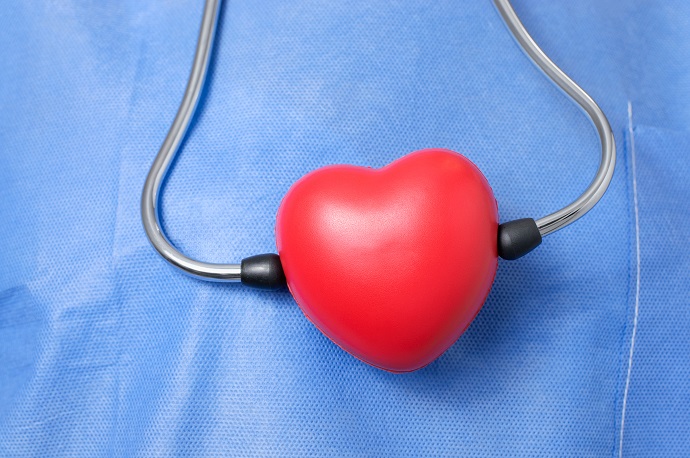NJ Quality Improvement Model Lowers Healthcare Costs by $641M
Under a quality improvement project, hospitals in New Jersey saw the greatest healthcare costs reductions by preventing hospital-acquired conditions, a report showed.

Source: Thinkstock
- Hospitals in New Jersey reduced healthcare costs by over $641 million between 2012 and 2016 after implementing a statewide quality improvement initiative, the New Jersey Hospital Association (NJHA) recently reported.
Under the Affordable Care Act, CMS established the Partnership for Patient project. The project brings physicians, nurses, hospitals, employers, patient, and industry groups together to improve care quality while reducing costs.
Partnership for Patient includes four components: hospital improvement innovation networks, hospital engagement networks, the community-based care transition program, and family and patient engagement promotion.
In 2011, NJHA joined the Partnership for Patient project as a hospital engagement network and set out to reduce hospital-acquired condition rates across the network. The association aimed to distribute best practices to help hospitals and their patients avoid harm.
Based on five years of data, NJHA found that the quality improvement initiative prevented over 77,000 cases of potential patient harm, resulting in significant healthcare cost savings.
“Improved outcomes for patients are the ultimate goal of this work,” the report stated. “But better care also yields savings which are essential in this era of rising healthcare costs.”
“Those results reflect a true partnership between NJHA, the state’s hospitals, health systems and other healthcare providers and engaged healthcare consumers who are working together to make healthcare better,” the association continued.
NJHA focused its quality improvement project on 13 hospital-acquired condition areas, but hospitals saw the most savings by reducing rates of hospital readmissions, pressure ulcer development, and adverse drug events.
New Jersey hospitals in the network lowered 30-day hospital readmission rates by 30 percent during the period, resulting in over $581 million in healthcare cost savings.
The lower hospital readmission rate also signified that the hospitals avoided over 66,000 cases of potential patient harm.
The focus area that saw the next highest healthcare savings was pressure ulcer development prevention. Hospitals realized over $34 million in healthcare cost reductions by decreasing pressure ulcer development rates by 38 percent.
Rounding out the top areas for healthcare cost savings was adverse drug event prevention. The participating hospitals lowered adverse Warfarin events by 55 percent, resulting in over $9 million in healthcare cost reductions.
Improving adverse drug event rates also prevented the second most patient harm cases behind lower hospital readmission rates. By decreasing their adverse Warfarin event rate, the hospitals avoided 3,122 cases of potential patient harm.
NJHA attributed its success with lowering healthcare costs and improving patient outcomes to three strategies.
First, the association focused on providing additional education to hospitals and their providers. NJHA engaged in regular webinars and in-person training sessions to present evidence-based best practices to providers in the participating hospitals.
Through the educational campaign, hospital leaders and providers received instructions on how to incorporate the best practices into workflows to improve care and reduce costs.
“By bringing together providers through webinars, face-to-face learning sessions and site visits, the healthcare community has shared with each other tools and practices that are known to work in improving patient care,” stated Aline Holmes, DNP, RN, NJHA’s Senior Vice President of Clinical Affairs. “It empowers healthcare providers to implement evidence-based best practices in care at the bedside and throughout organizations.”
Second, the resources from the CMS-sponsored Partnership for Patient project helped hospitals to apply evidence-based guidelines in their organizations. CMS provided the hospitals with guidelines, checklists, training manuals, how-to guides, instructional videos, algorithm, and brochures.
Third, NJHA pointed to its data collection and sharing strategy as a top reason why the quality improvement initiative reduced healthcare costs. Hospitals in the network reported data to NJHA each month and the association developed dashboards and benchmarking for the hospitals.
“Data allows healthcare providers to understand their current situation, identify areas that need improvement and measure the impact of any strategies they implement,” the report stated. “In short, good data reviewed regularly helps healthcare providers know where they stand – and drives them to where they want to go.”
After five years as a hospital engagement network under the Partnership for Patient project, NJHA will become a hospital improvement innovation network in 2017. The new designation means that the hospital engagement network will integrate with the CMS Quality Improvement Network-Quality Improvement Organization program.
As a hospital improvement innovation network, NJHA aims to maintain and improve national patient harm reductions and 30-day hospital readmissions in the Medicare program. The association intends to reduce overall patient harm rates by another 20 percent and 30-day hospital readmission rates by 12 percent.
